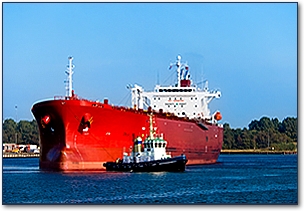Do you think of the ocean as a quiet place? Think again! Our oceans can be loud and are getting louder. Noise that comes from people and their equipment might bother and even hurt animals living in the sea.
You might already know that many sea animals communicate with each other through sound. They use sounds to attract other animals and to warn about coming dangers. Scientists are beginning to understand that marine animals also use their sound environment to help them make sense of the wet world around them. Anything that interferes with this sound environment might be dangerous to an individual animal, and even to the survival of a species.

Arthur N. Popper, Ph.D., and Mardi C. Hastings, Ph.D., both college professors, write that humans make a lot of noise in our oceans. The scientists aren't concerned about the sounds you and your family make as you splash in waves at the beach. Instead, they’re worried about the noise made by boats, ships, and oil exploration equipment. They are also concerned about pile driving (a very loud technique that helps to build a foundation for bridges, ports, and buildings), and sonar—a way of communicating and measuring distances by sending out sound waves—used by militaries, shipping and fishing companies, and ocean researchers.
Dr. Popper, whose research has been funded by the National Institute on Deafness and Other Communication Disorders (NIDCD), and Dr. Hastings point out that right now, there are more worries than hard facts about the effects of noise on fish and other marine animals. The good news is that these worries are leading to more research. When scientists know more about the damage that noise can cause, they can think of better ways to protect fish and other sea animals from harm.
Read a short news article about the research of Dr. Popper and Dr. Hastings, or read the full research report [PDF – 165 KB].
You can also read more about Dr. Popper and his lab.
Last Updated Date



